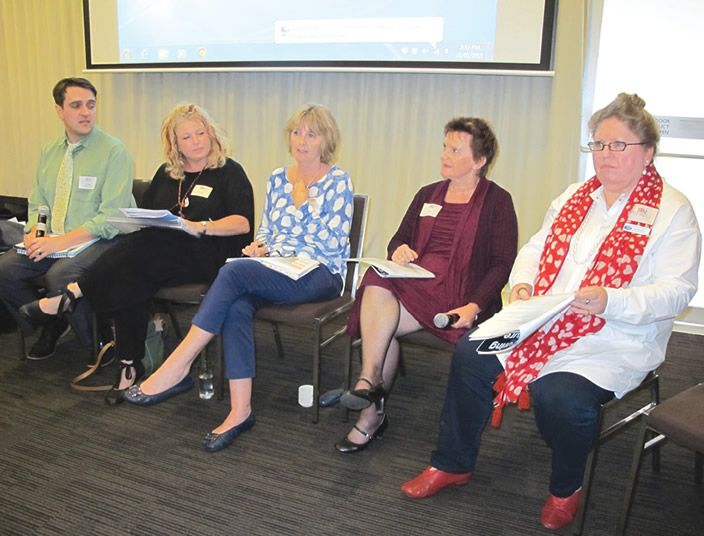
Accreditation proved to be the dominant topic at the Exploring Issues in Early Childhood workshop held during the IEU’s Securing Our Future Best Practice Induction and Mentoring Conference held on 21-22 May.
The panel discussion revolved around the nitty gritty of how accreditation, induction and mentoring can work in the early childhood sector.
It's understood that from 1 January 2016 teachers working in the sector will be ‘deemed’ Proficient, and from 1 October 2016 anyone entering the profession as a new teacher will have to undergo the accreditation process, the same as a school teacher.
How BOSTES will administer this is a work in progress, as many members of the workshop panel agreed.
They also agreed that accreditation will give early childhood teachers the professional base they need to prove their worth.
Lismore Preschool Early Childhood Education Support Officer Lynette Funnell said everyone would have minimum standards to work from.
Albury Preschool Director and IEU ECS Vice President Gabe Connell said early childhood teachers suffered from the ‘Princess Diana Syndrome’. Princess Diana was described in the press as a kindergarten teacher although she had no qualifications.
“She was just someone kind who liked working with children. We have to prove our value, and accreditation will help. It might lead to pay parity [with school teachers].”
Lyn Connors, KU Regional Office Mayfield Area Manager, said many teachers were trained to teach 0-12, so having accreditation which was relevant to both school and early childhood would give them more flexibility.
“At the moment they are forced to choose between school or early childhood, but this allows them to move from one or the other and back again,” Lyn said.
Who would provide induction and mentoring and oversee the accreditation process for new teachers, particularly in stand alone rural and regionals settings, was a major question.
Max Gracock, Teacher Learning Network Victoria Program Manager, and Lynette both said it was vital teachers told BOSTES now, during the consultation period, how the induction and mentoring process should be run in early childhood.
“We must choose our own destiny,” Max said.
Gabe said deemed teachers would need training themselves on how to mentor others.
Lyn suggested stand-alone centres could form networks to share mentors.
Carol Burgess, NSW State President, Early Childhood Australia, said finding mentors for early childhood teachers was a serious issue, which BOSTES needed to recognise and address.
Gabe said it was important that release time for professional development was mandated, otherwise it would be a problem dealing with parent committees.
IEU ECS Officer Verena Heron said the IEU was working on enterprise agreements that included provisions for time release for professional development and mentoring, and the IEU sits on the working party at BOSTES developing the accreditation process.







































































































































